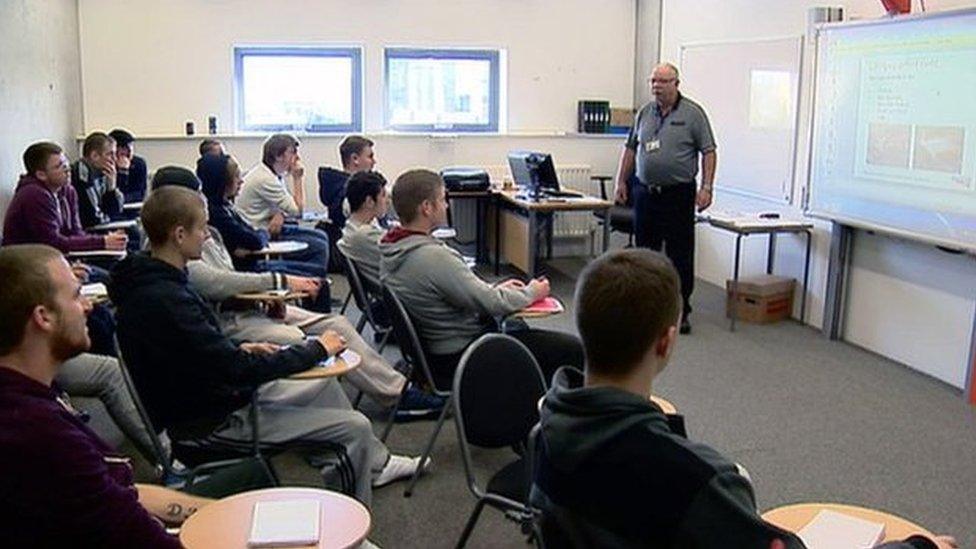Scottish college lecturers to vote in strike ballot
- Published

College lecturers are voting on industrial action up to, and including, possible strikes
Scottish college lecturers are being balloted on industrial action as part of a long-running dispute over pay.
The Educational Institute of Scotland (EIS) said members had run out of patience waiting for the provisions of an agreed pay deal to be delivered.
It said its hand had been forced by "frustrating behaviour of management".
The Colleges Scotland Employers Association said the ballot was "premature" and "inappropriate" while talks were ongoing.
It said the proposals put forward by the union could cost more than £30m and would not benefit students or the college sector.
The EIS declared a formal state of dispute earlier in the month over what it termed the "non-delivery" of a deal agreed in March 2016 after an earlier period of strikes.
General Secretary Larry Flanagan claimed college bosses tried to "rewrite certain elements of the deal", saying "the patience of our members is now exhausted". The ballot, which is on industrial action up to, and including, potential strikes, is open for two weeks.
Mr Flanagan said: "The EIS does not open any industrial action ballot lightly, but our hand has been forced by the frustrating behaviour of the management side."
'Very inappropriate'
John Kelly, president of the union's Further Education Lecturer's Association, added that it was "simply unacceptable that the management side entered into a pay agreement, then dragged its feet for a year before failing to agree the deal as promised".
A spokeswoman for the Colleges Scotland Employers' Association insisted lecturers had already received a pay increase, and said "good progress" was being made in other areas.
She said it was "disappointing and very inappropriate" that EIS had chosen to hold a ballot "during a period of constructive negotiation".
She added: "While we recognise that the process is taking time, it is nonetheless time well spent. Our determination is to resolve what are complex issues as soon as possible, which will create real benefits for students and the whole sector.
"As they stand, the EIS proposals would cost over £30m and include demands for 66 days of annual leave and only 21 hours of class contact per week - to have pay treated separately from terms and conditions in this would would bring no discernible benefits for students, the college sector or the taxpayer."
- Published6 September 2016

- Published4 March 2016

- Published12 February 2016
